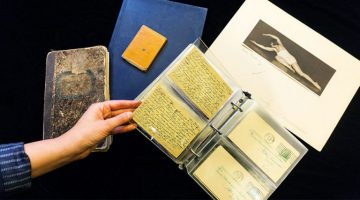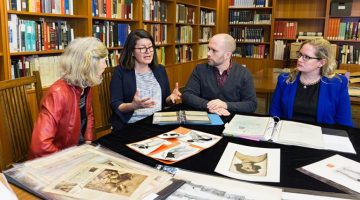UBC Library’s Rare Books & Special Collections (RBSC) has acquired the personal archive of Hanne Wassermann Walker (1893-1985), a significant figure of pre-WWII Viennese cultural and social life. Her remarkable story has been relatively unknown until now.
A well-known figure of Viennese society during the 1920s and 1930s, Wassermann Walker was at the forefront of the Weimar-era body culture movement. Her school of gymnastics and health manuals for women brought her international fame and recognition from reputed medical institutions and clinical specialists. In 1985, Hanne died without heirs, and items from her estate were acquired by a local collector.
Library’s acquisition of the full archive was achieved due to the efforts of Katherine Kalsbeek, Head of Rare Books and Special Collections, Krisztina Laszlo, RBSC Archivist and support of numerous individual donors, foundations and key departments at UBC (UBC President’s Office, the Faculty of Arts, the Department of Kinesiology, the Department of Central, Eastern and Northern European Studies (CENES).
The sheer size and breadth of the archive presents countless unique opportunities for research, teaching and learning in a number of fields from Holocaust studies, and Women’s Studies, to Kinesiology and Fine Art. Krisztina Laszlo, notes that the acquisition of this archive “is an example of RBSC’s effort to increase our documentation of women’s role in history. Representation of women, and their successes in the life of this province, and the larger world, needs to be celebrated, preserved and recognized.”


Dr. Patricia Vertinsky, Professor in UBC’s School of Kinesiology, is particularly interested in parts of the collection that involve Wasserman-Walker’s exercise system. “What interests us in Kinesiology is exploring the provenance of these exercise systems and then understanding the way in which Hanne brought them to Vancouver. She spent forty years teaching them, first in Vienna and later in Vancouver in people’s basements and community centres – two completely different worlds.”